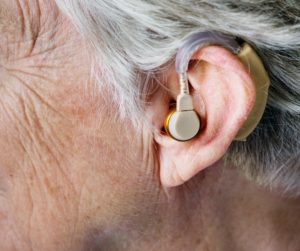
When caring for or visiting with a loved one with memory loss, try to meet them where they are. If he is in the war in 1940, be fighting right alongside him in 1940.
When caring for someone with memory loss, we must keep things in mind. Family and friends have special ways of reminiscing. There are shared memories which bubble to the surface with inside jokes and memories about each other that remain unspoken because of that shared history. We will never know what tales a loved one would share about us with a stranger.
Louise, a resident at the Cottages, was excited to have a visitor. She had donned her favorite scarf and made sure her nail polish matched. As she sat across from the beautiful younger woman, she caught a hint of familiarity as she noticed a silver elephant pendant sparkling on her necklace. Louise perked up, “My daughter Sarah loves to collect elephant figures and jewelry. She started gathering them when she was just three years old after she saw one at the zoo and her eyes lit up with such joy because it very carefully took a peanut from her outstretched hand. Every time I see an elephant I think of her and I see that look on her little face…”
This could go one of two ways…
Scenario 1
Holding Louise’s warm hands, Sarah felt simultaneously touched by the story and hurt that her mother didn’t recognize her. “Mom, it is me- Sarah- your daughter!” Flustered, Louise tried to gather herself as she wiped the tear from her eye, trying to regain her composure. She felt humiliation, suspicion, and confusion- my daughter? How is this her- how did she grow up so quickly? This is impossible. She is just three years old. This grown woman can’t be her, but there is something familiar about her so maybe she is right… “Oh, uh, yes, of… of course, dear. I knew that…”
Scenario 2:
Although Sarah felt disappointed that her mother didn’t recognize her, she decided to put her own feelings aside and instead assume the role of “Friendly Stranger” which her mother had assigned to her. She said “Tell me more about your daughter.” Louise lit up, her eyes sparkling like they did when she was younger “She is three years old and she has the most beautiful curly golden hair. Everyone says I should cut it, but I just couldn’t bear it so it has grown down to here…” Sarah listened intently, soaking up every word as she realized that she had never known exactly what she was like as a three year old, nor how her mother felt about her at the time. She felt like she was spying on the woman her mother was when Sarah was a young child- a woman that she as an adult had never known.
This Means…
When caring for or visiting with a loved one with memory loss, try to meet them where they are. If he is in the war in 1940, be fighting right alongside him in 1940. If she thinks she needs to get home to her young children, ask her about her children and find out more about them even if those “young children” she’s describing are yourself or your parents.
Typically, when two people are talking, one is remembering a moment from the past. However, when one of those people has memory loss they are living a moment from the past. If you go on that journey with them, you become a time traveler.
Article Provided by:
CarePartners Senior Living
www.CarePartnersLiving.com
Search Retirement Connection Listings for Residential Care Facilities
Search Residential Care Facilities for Grants Pass
Search Residential Care Facilities for Klamath Falls
Search Residential Care Facilities for Medford
Search Residential Care Facilities for Roseburg



